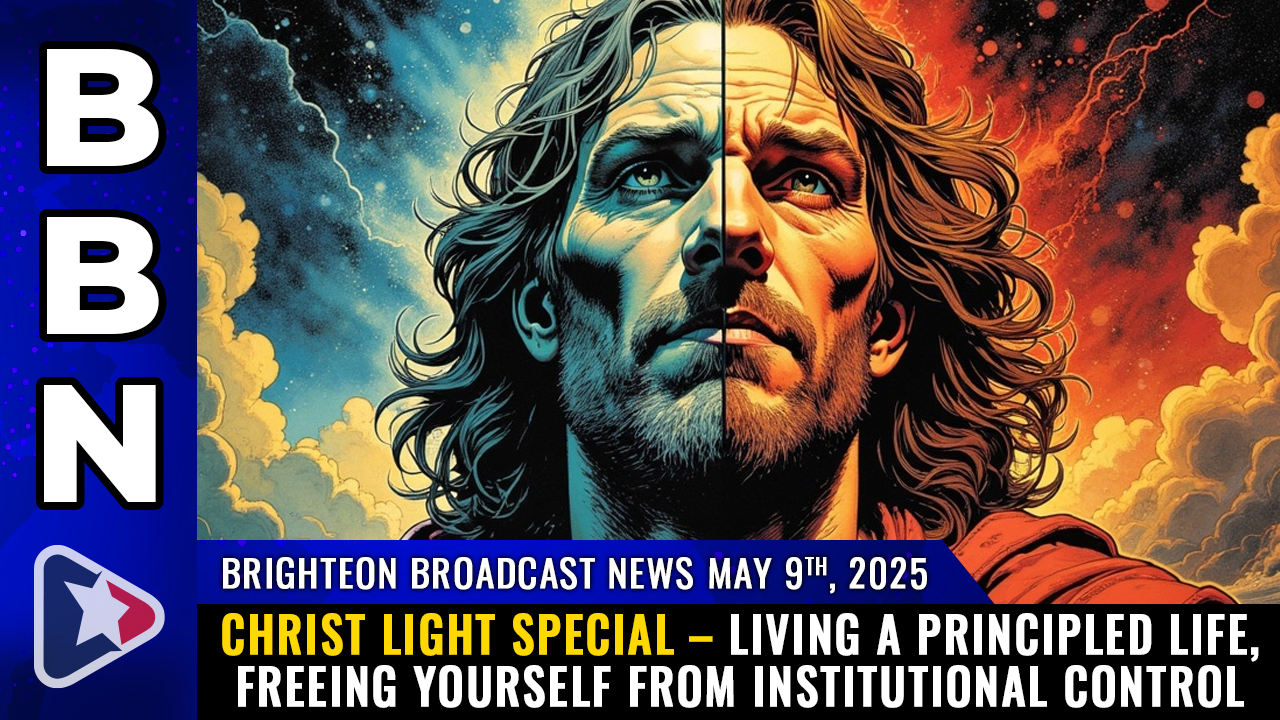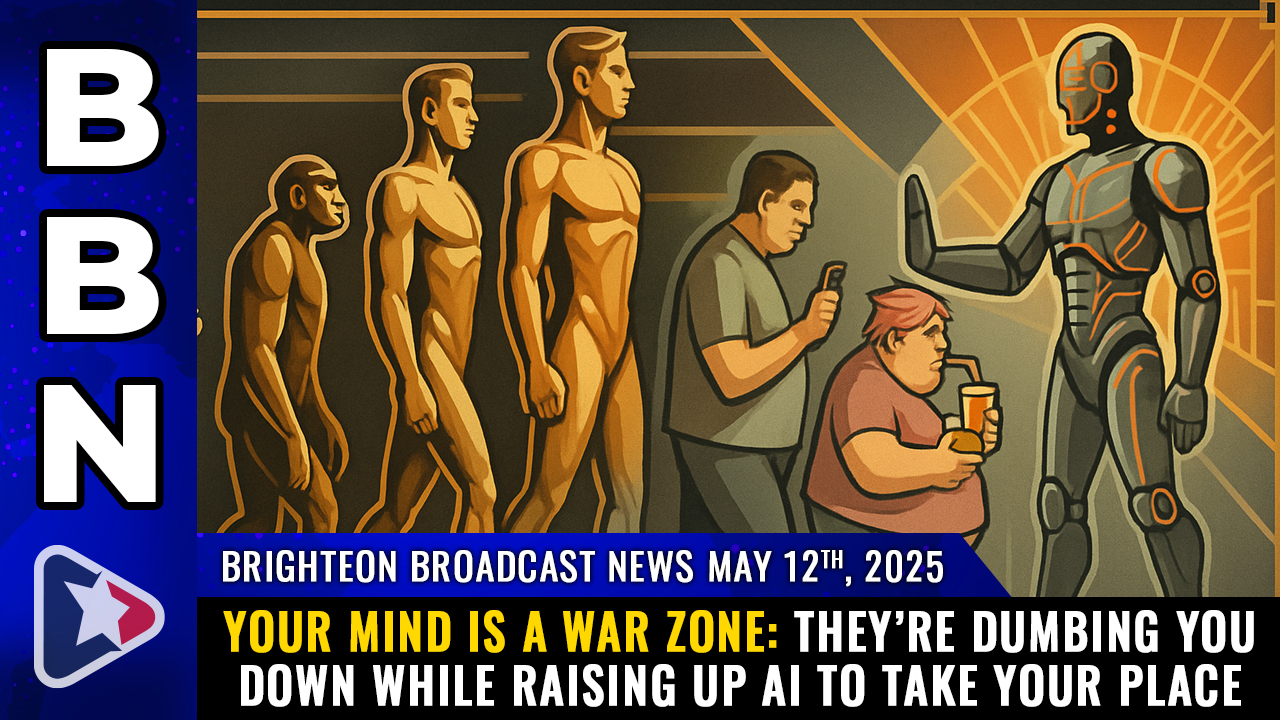
- Rejecting Corrupt Institutions: A movement urges believers to abandon churches entangled in politics, violence, and hypocrisy, advocating instead for a direct, personal relationship with God.
- Condemning Hypocrisy: Mike Adams criticizes mainstream Christianity for supporting war (e.g., Gaza bombings), calling such actions "Antichrist" and contrary to Jesus’ teachings of love and compassion.
- Paul vs. Jesus: Adams highlights contradictions between Jesus’ emphasis on deeds and Paul’s theology of faith-based salvation, arguing Paul’s doctrines enable institutional control over personal spirituality.
- Decentralized Faith: The movement encourages self-guided Bible study (focusing on Jesus’ words), rejecting dogma that justifies oppression, and living faith through action, not institutional rituals.
- Universal Love: True Christianity, Adams argues, upholds life, justice, and divine connection through nature and kindness—free from corrupt institutions that distort Christ’s message.
The Corruption of Modern Christianity
Adams, in a recent discussion, criticized mainstream Christian institutions for their moral failures, particularly their support for violence, such as the bombing of children in Gaza. He argues that many churches have abandoned Christ’s core message of love, compassion, and universal dignity in favor of political alliances, financial interests, and doctrinal rigidity. "Any church that supports bombing children is an Antichrist church," Adams asserts, emphasizing that true Christianity cannot coexist with the advocacy of genocide. He points to the hypocrisy of Christian Zionist leaders who justify violence while claiming to follow a Messiah who preached turning the other cheek and feeding the hungry.Paul vs. Jesus: A Contradiction in Doctrine
A central theme in Adams' critique is the disparity between the teachings of Jesus and those of Paul, whose writings dominate the New Testament. While Jesus’ words—often highlighted in "red-letter" Bibles—emphasize love, forgiveness, and deeds of kindness, Paul’s theology introduces concepts like salvation through faith alone and divine wrath, which Adams argues distort Christ’s original message. "Paul was a mass murderer of Christians before his conversion, yet his writings became the backbone of modern church doctrine," Adams notes. He highlights how Pauline theology has been used to justify institutional control, discouraging believers from questioning authority or seeking a personal relationship with God outside church-sanctioned frameworks.The Call for Spiritual Autonomy
Adams advocates for a decentralized faith—one where individuals engage directly with Scripture, particularly the words of Jesus, rather than relying on pastors or denominations to interpret spirituality for them. "Your relationship with Christ and God is personal," he says. "You don’t need a church to tell you how to worship." This perspective aligns with broader movements resisting centralized control—whether in religion, health (natural medicine vs. Big Pharma), or governance (decentralized systems vs. authoritarianism). Adams encourages believers to:- Read the Bible for themselves, focusing on Christ’s teachings.
- Reject dogma that contradicts love and compassion, such as endorsing war or oppression.
- Live out their faith through deeds, not just declarations of belief.
A Return to Christ’s Universal Love
At its core, this movement seeks to reclaim Christianity as a force for good—one that upholds the sanctity of all life, challenges injustice, and fosters a direct, unmediated connection with the divine. "Christ’s energy is in everything—nature, healing, creativity, and acts of kindness," Adams explains. "No institution can disconnect you from that unless you let them." For those disillusioned with modern Christianity, the path forward may lie in decentralization: rejecting corrupted institutions while embracing the radical, life-affirming teachings of Jesus himself. As Adams concludes, "If the church can’t stand for starving children, what does it stand for?" Watch the May 9 episode of "Brighteon Broadcast News" as Mike Adams, the Health Ranger, talks about living a principled life, freeing yourself from institutional control. This video is from the Health Ranger Report channel on Brighteon.com.More related stories:
Mike Adams Sermon 67: The second coming of Christ will be in the form of a COMET sent by God to TERMINATE EVIL on Earth Mike Adams Sermon 52: The 7 SEALS in the Book of Revelation Mike Adams Sermon 55: The COSMIC IMPACTS that God uses to destroy wicked civilizations Sources include: Brighteon.comGovernment workers at risk as AI automation threatens 80% of Federal jobs
By Finn Heartley // Share
Earth-like soil patterns on Mars reveal clues to the planet’s climate history
By Willow Tohi // Share
Monkey orange: The secret superfruit that supports good health
By Zoey Sky // Share
Unlocking the potential of herbal COX-2 inhibitors for modern ailments
By Belle Carter // Share
Royal jelly: Another nutritious bee product you should know about
By avagrace // Share
Study finds that the Mediterranean diet can slash dementia risk by 23%
By avagrace // Share
U.S. and China agree to slash tariffs in 90-day trade war truce
By isabelle // Share
Zelensky and Putin set for high-stakes Turkey talks after Trump’s ceasefire push
By isabelle // Share
Panama canal crisis: U.S. and China vie for control as Panamanians plead for American support
By finnheartley // Share
Government workers at risk as AI automation threatens 80% of Federal jobs
By finnheartley // Share










